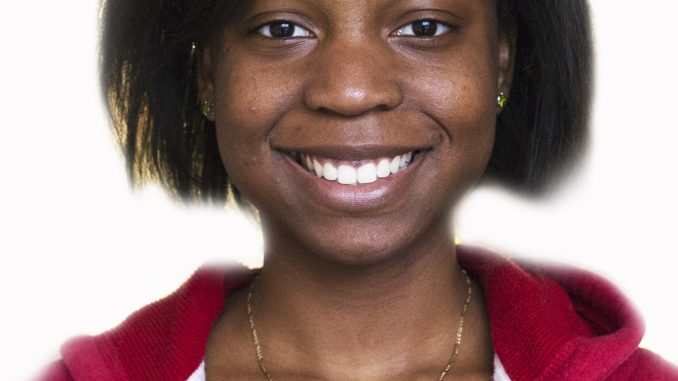
Temple, known to many as “Diversity University,” is ranked No. 493 in ethnic diversity nation wide, with 60.2 percent of the student body being white and only 13.5 percent black, according to collegefactual.com. With this in mind, I was understandably shocked when I read comments on Yik Yak on Oct. 31 that criticized the role of black student organizations on Main Campus.
“I’m sick of this ‘white privilege’ s—,” one user wrote. “White people can’t say anything even remotely out of line, without the entire black population making a huge deal about it, while they say whatever they want.”
Yik Yak is a phone app that allows users to share short posts, similar to Twitter, except yaks – what the posts are called – are completely anonymous. The app is based on location, so if you use it while on Main Campus, many yaks are from students.
The Black Student Union reacted angrily on Twitter that morning, sharing photos of the Yaks and tagging other black student organizations to bring further attention to the comments.
“Their oppressive ideas show how ignorant they are to the obvious destruction and genocide of black and brown bodies in this country!” the organization tweeted.
Another incriminating yak read, “It’s a problem when you have organizations like the NSBE, National Society of Black Engineers. Tell me how that’s not discriminatory.”
Just three days before these anonymous Yik Yak users targeted black student organizations, TSG hosted TUnity, an event designed to promote diversity and unity throughout the student body. The event generated a statement that serves a reminder to all students to keep an open mind about the presence of different people and cultures on campus. Parts of that statement include “welcome those who are different from us to challenge and expand our worldview,” and “there is no place for ignorance or violence on our campus,” according to TSG’s website.
Not all students share the opinion that white privilege doesn’t exist and that black student organizations are discriminatory. One brave Yik Yak user came to the defense of black student organizations by simply stating, “We create these clubs to unite our people.”
Many students reacted on Facebook and the majority of the people who posted – white and black alike – agreed that white privilege does exist and is a serious problem. One student suggested that the ignorance demonstrated on Yik Yak could be the result of a lack of education and awareness of the topic. In regards to black student organizations, however, Jarred Geis, a senior tourism and hospitality major, said he believes organizations specific to one ethnic or racial group “keeps us from progressing in equality.”
While I do see the basis of that point, here’s mine. Black student organizations, as well as other cultural organizations, are not created for the purpose of keeping out people who are not in that ethnic or racial group – they are meant to unite students of the same background and welcome them into a friendly environment where they can be around their own people and flourish.
“So why can’t white people have clubs?” asked one Yik Yak user involved in the discussion.
In response to that, it’s important to consider the historical presence of racial discrimination as it pertains to today’s society. As recently a half a century ago, racial segregation was still legal. Michelle Alexander’s book “The New Jim Crow,” describes that in this so-called “post-racial” United States, more black adults are behind bars than were enslaved in 1850, a black child today has less of a chance of being raised by both parents than a black child born during slavery, unarmed black men are being slain by the police and more black men are being stopped and pulled over by police on suspicion of drug possession – despite the fact that blacks are no more likely to carry drugs than whites.
In a country that is still fundamentally unequal, black student organizations as well as other cultural organizations should be celebrated, not frowned upon. They should be viewed positively as institutions for minority advancement, not subjected to the ignorant idea that they are discriminatory.
At a seminar on Main Campus last Friday, professionals in the field of African American Studies weighed in on the idea of white privilege.
“[People who do not believe white privilege exists] have historical amnesia,” said Dr. Reiland Rabaka, a professor in the AAS Department at the University of Colorado at the event. “America didn’t develop in a vacuum.” He added that there is a “cultural capital that goes along with being white,” and that the idea of white privilege being nonexistent is “fiction.”
Dr. Molefi Kete Asante, chair of the AAS Department, shared similar views.
“White privilege is pervasive,” he said. “Black student organizations are a response to the fact that all students organizations are white for the most part – the culture of those organizations are white.”
Being white in this country is the norm – it is the standard we as society use to measure the prosperity for those who are non-white. Even something as simple as equality is unconsciously applied to the white standard. We think people are equal if they are all being treated like whites – that’s white privilege. To achieve real equality, we must focus on people being treated like people.
Whites are the dominant racial group on Main Campus and in the country. So if people or students of the same racial or ethnic group want to form an organization uniting themselves there is no harm done. In a white dominated society, it is crucial that minorities have places to unite and thrive. Cultural organizations should be embraced and celebrated not only for the unity of their people, but for the uniqueness and diversity they add to the white society we live in.
Sydney Parsons can be reached at sydney.faye.parsons@temple.edu and on twitter @sydney_faye96


Be the first to comment